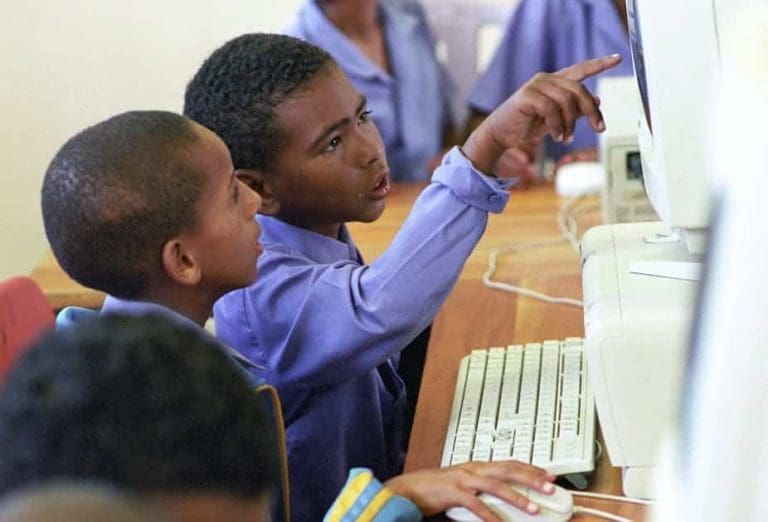South Africa’s education system is complex, with historical inequalities dating back to apartheid. Most of the country’s pupils come from disadvantaged backgrounds. Language is an issue; most pupils do not speak English as a mother tongue, yet English dominates in many classrooms. And, as the COVID-19 crisis has showed, there’s a huge digital divide at play.
Read more:
Five things South Africa must get right for tech in schools to work
The ongoing effects of the virus have kept pupils and teachers at home. This has necessitated a move to e-learning. In theory, this could be an important step towards a fairer education system. Digital platforms enable equitable access for learners to digital books, simulated science labs and related innovative learning resources.
Electronic and mobile learning can thus be seen as an additional learning resource that can also help enhance access to learning tools. Access to e-learning is not a panacea to the challenges in South African education. But it does provide an opportunity to make access to learning resources for all children more equitable.
But the reality in South Africa, as in most developing countries, is very different. Teachers have varying digital skills. Many families and teachers also cannot afford the data necessary to sustain some online learning activities.
COVID-19 has shown that technology is no longer a luxury but an important component of the education process. In presenting solutions, a wide range of factors must be considered. These range from access to computers, to teacher training, to the social and economic challenges faced by teachers, pupils and schools in their communities.
National focus
There are already some strategic policies and resources in place to help schools and teachers use technology as part of the teaching and learning process.
Information and Communications Technology is also taught as a school subject. But the government needs to consider an additional range of issues if it’s going to solidify a commitment towards e-learning. This includes policies and strategies surrounding connectivity, data costs, skills development, hardware access as well as contextual multilingual digital learning content.
Many schools have little or no technology facilities. Some have tablets and only a few have advanced computing laboratories. Formal training in applied technology skills is provided for teachers who want to teach a technology specialist subject in schools.
But all this needs to be extended. Adequate digital skills training should become a mandatory component of all teacher training programmes in universities, universities of technology and colleges. While there have been several digital training programmes for both in-service and trainee teachers in some provinces, it is time for a concerted national programme to ensure all teachers are skilled in digital teaching and technology.
Several studies have reflected on the innovative use of mobile phones and related applications to support learning in South Africa.
But South Africa has some of the highest data costs on the continent. This means that pupils can’t always easily access information on their mobile phones.
Read more:
Kids can keep learning even during a lockdown. Here’s how
In the wake of South Africa’s first COVID-19 cases, as schools closed, several educational sites were zero rated; this means they are now free to use.
This should be extended to support home schooling and any future returns to school, so that data costs don’t keep schools in poorer communities from accessing these resources. Policies to enable such beyond the pandemic should be considered.
Projects that work
As an educator who focuses on Education Technology research, I know there is enormous enthusiasm among teachers and pupils to become more digitally savvy. I have worked with a number of under-resourced schools, supporting the teaching of Science, Technology and Maths subjects through basic software applications, learning management systems and other free-to-use cloud-based education platforms.
When pupils and teachers receive the right support for digital learning, the response is often remarkable. I have met many teachers who willingly dedicate their weekends and school holidays to digital learning and teaching, with no financial incentives but a passion to equip pupils with digital skills.
I am particularly proud of a collaboration between computing students from the University of the Western Cape with teachers in a high school in an underprivileged part of Cape Town. Their work together has cultivated computing skills and sparked learners’ interest in other subjects like chemistry and astronomy.
A similar collaboration has been expanded to the North West province and convinces me that there are thousands of teachers who are keen to retrain to prepare their pupils for the digital era.
The COVID-19 crisis offers a unique opportunity to harness this enthusiasm. With the right support and training, digital teaching and learning can become ubiquitous even in resource-strapped environments.![]()
Mmaki Jantjies, Associate professor in Information Systems, University of the Western Cape
This article is republished from The Conversation under a Creative Commons license. Read the original article.

